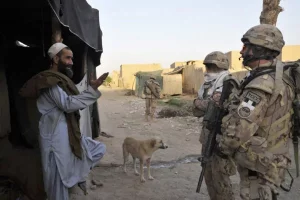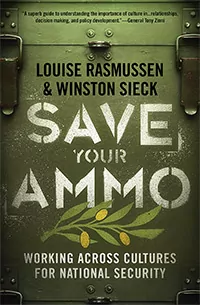
Honor and respect are fundamental Afghan values. Yet, a recent study found subtle differences in how Afghans in different groups and situations interpret honor. Also, the conceptions of honor and respect as held among Afghans do not necessarily correspond with neighboring American concepts.
The importance of honor is widely felt across Afghanistan, rather than relegated to predominantly Pashtun tribal areas says Winston Sieck of Global Cognition and his colleagues. Sieck presented the study results at the International Association for Cross-Cultural Psychology (IACCP) 21st International Congress 2012, held in Stellenbosch, South Africa.
Honor is widely considered to be a fundamental component of Afghan values. Yet, most of the existing studies and literature describing the role honor plays in Afghan decision making and behavior focus on the ethnic group of the Pashtuns. A plausible reason for this is that the popularized Pashtun ethical system, Pashtunwali, explicitly includes concepts of honor within its ordered sets of values and concepts. These popularized Afghan values are, in principle, held by all Pashtun and guide which behaviors are seen as ‘good’ or ‘bad.’
Previously, it has not been clear to what extent honor, discussed as a core component of Pashtunwali, reflects a fundamental Afghan value of widely shared importance and interpretation among the full panopoly of ethnic groups living in Afghanistan. Understanding this point is important for gauging how issues of governance and rule-of-law will be appreciated by various Afghan groups.
Dr. Sieck developed and implemented new techniques for cognitive-cultural modeling to address these questions. His research team conducted a novel “mental models” survey with 405 Afghans from a variety of provinces and ethnic groups to understand the array of native perspectives on Afghan values and behavior in ethically-charged scenarios. The responses were used to build cognitive-cultural models of the Afghan protagonists’ decision making in the scenarios. The new methods enabled the explicit mapping of the full range of decision elements. These included immediate intentions and goals, and their direct links to fundamental cultural values.
The new techniques revealed that, although wide spread in importance, there were some differences in interpretation of honor across the groups, as well as how it was expected to manifest within specific situations. For some Afghan groups, honesty was the most significant factor related to gaining or losing honor. For others, defending against foreigners was the predominant way to gain honor, and failing to provide for one’s family was the surest way to lose it.
In addition, the semantic relationships between honor and other values, such as wealth (material possession) were found to be complex, so that one cannot readily establish “either/or” tradeoffs between them to interpret behavior. For instance, providing for one’s family was seen as an essential component of honor, and material acquisition is necessary to being a good provider.

Sieck worked with Louise Rasmussen to prepare a booklet, “What happens after the third cup of tea: A cultural sensemaking guide to Afghanistan,” based on the results of this and other studies into the nature of cross-cultural competence. The booklet describes 7 actual scenarios of American-Afghan encounters, and compares/contrasts Afghan and American perspectives for each. It serves as a training aid for U. S. service personnel deploying to Afghanistan, and is available to authorized personnel through the GAO.
Related Articles:
- Respect for Arab Crowds
- Cross-Cultural Competence: Engage People from any Culture
- Cultural Chameleons Blend in by Showing True Colors
- Seasoned Globetrotters Know What They Need to Know About New Cultures
- Five Metacognitive Strategies to Change Your Mind
Image Credit: lafrancevi


Is it possible to obtain a copy of the paper/presentation? I am especially interested in the mental model survey. Thank you.
Sure thing, Bill – I’ve sent you something by email.Thanks for your interest.
Would it be possible to obtain a copy of the research presented at the conference? I am conducting a research project on the correlation of the Afghan culture of honor and female oppression.
Thanks for your interest, Isabelle. I’ll be in touch.